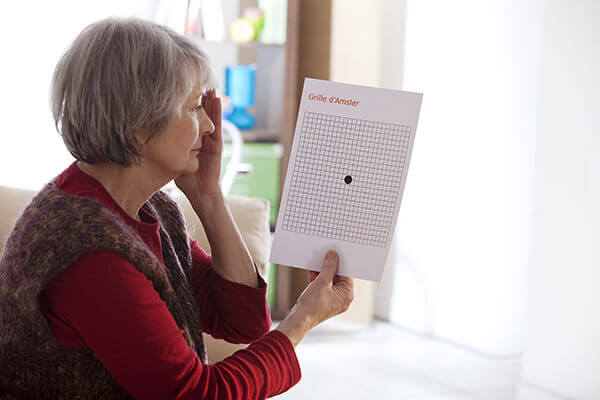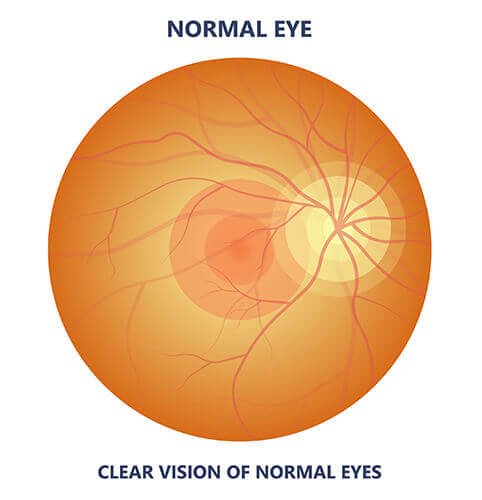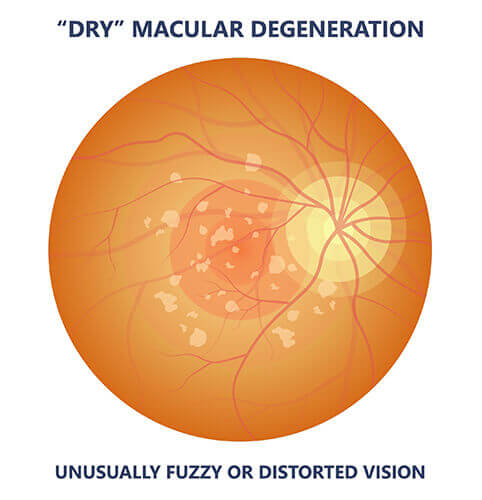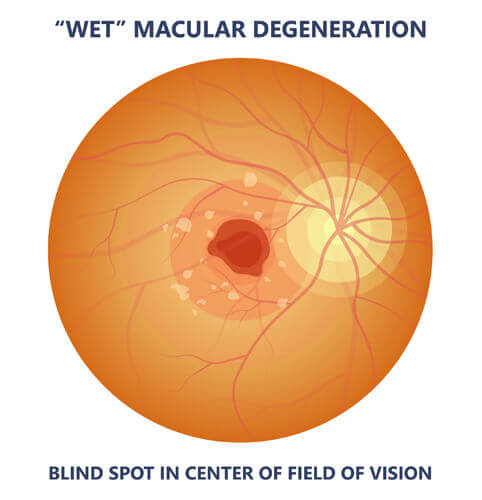Macular Degeneration

You may have many questions if you or someone you love has been diagnosed with age-related macular degeneration. The caring team of eye physicians at Kresloff Eye Associates is here to provide our patients with comprehensive eye care, including treatment for age-related macular degeneration.
What is Macular Degeneration?
Age-related macular degeneration is an eye condition that occurs when there is damage and deterioration to the central part of the retina, called the macula. The macula is part of the eye that’s responsible for your central vision, which includes being able to identify faces.
Most people that suffer from macular degeneration are older because it’s an age-related eye condition. Those with this age-related eye condition usually lose vision slowly over time.
Are There Signs of Macular Degeneration?

There are some signs that a patient has age-related macular degeneration, including:
- Experiencing distorted or blurry vision
- Finding it far more challenging to recognize people’s faces successfully
- Finding reading more challenging than it used to be
- Noticing you now need brighter light to perform daily activities
Some of these signs may not be exclusive to macular degeneration, so seeing your eye doctor to determine their cause is essential. If it is age-related macular degeneration, your ophthalmologist can devise an appropriate treatment plan to preserve your remaining vision and slow the progression of the eye condition down.
Risk Factors of Macular Degeneration
Some patients are at an increased risk for the development of age-related macular degeneration. Your risk of developing age-related macular degeneration may increase if the following applies to you:
Age
If you’re 50 or older, your risk of age-related macular degeneration already increases. Macular degeneration is the leading cause of vision loss in those 50 or older.
Family History of Macular Degeneration
If you know you have a family history of macular degeneration, like a parent or sibling had it, your risk of developing age-related macular degeneration also increases. Tell your eye doctor if you have a family history of the eye condition, as they may want you to come in for more frequent eye exams to monitor your eyes.
You’re a Smoker
It should be no surprise that smoking is bad for you, but this also extends to your eyes. If you’re a smoker, this also increases your risk of developing age-related macular degeneration. Do your best to quit if you haven’t already to reduce your risk of this eye condition.
You have High Blood Pressure
Do you have high blood pressure? You may also find high blood pressure increases your risk of developing macular degeneration.
Talk to your primary care physician about lowering your blood pressure if you haven’t already to reduce your chances of developing this eye condition.
You’re Considered Overweight
Those considered overweight will also find that their risk of developing age-related macular degeneration increases. Reducing weight can help you feel happier and healthier while lowering your risk of developing macular degeneration.
Different Kinds of Macular Degeneration
There are two different kinds of age-related macular degeneration: wet and dry.
Wet Macular Degeneration
Wet macular degeneration is the least common among the two kinds of macular degeneration. Wet macular degeneration occurs when abnormal blood vessels begin developing under the retina.
These blood vessels are much weaker than usual, which leaks fluid and blood. Because they leak, the abnormal blood vessels damage the macula, causing rapid and severe vision loss.
These blood vessels also scar the macula, permanently damaging the macula and affecting your ability to see using your central vision. However, you’ll still be able to use your peripheral vision.
Dry Macular Degeneration
The other form of macular degeneration is the dry form. Dry macular degeneration is much more common, affecting about 80% of patients with macular degeneration.
It occurs when some of the macula begin to become thinner. The macula often becomes thinner because of aging.
When this happens, it allows small clumps of a protein called drusen to develop. Drusen affect your peripheral vision and make it harder to see clearly when using your central vision. Although you will likely lose most of your central vision, it rarely causes complete blindness.



Why it’s Important to Seek Treatment for Macular Degeneration
Although there’s no cure for macular degeneration, there are ways to treat the eye condition to help delay its progression and preserve your remaining vision. If you have wet macular degeneration, your eye doctor can recommend various treatments to help treat the abnormal blood vessels using injections or laser surgery.
These treatments can help delay the eye condition’s progression, helping preserve your vision. Although they cannot bring back the vision you’ve lost, they may be able to slow the rate at which your vision declines.
If you have dry macular degeneration, a vitamin regimen called AREDS2 can help prevent the condition from reaching the advanced stage. This vitamin regimen could help intermediate dry age-related macular degeneration from progression to the stage when vision loss occurs.
Patients with age-related macular degeneration risk losing more vision to the eye condition by not seeking treatment. With treatment, they can potentially stop the progression of vision loss and preserve the vision they still have.
Learn more about age-related macular degeneration and appropriate ways to treat the eye condition by requesting an appointment today at Kresloff Eye Associates in Collingswood, NJ!
